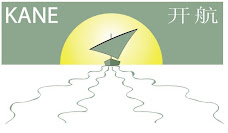Great article in today's Asian Wall Street Journal by Professor Victor Shih of Northwestern. Professor Shih writes that although credit and broad money supply has tightened in the West, the opposite is true in China.
"Despite a cascade of State Council decrees restricting bank lending this year and a high-profile Politburo meeting in November that focused on the risk of inflation, bank lending last month grew by over 800 billion renminbi ($112 billion) -- equivalent to 22% of the total loan quota that Beijing's technocrats meted out to state-owned banks for 2008." (-Victor Shih, "China's Credit Boom", Asian Wall Street Journal, February 21, 2008)
Shih adeptly identifies this standoff as,
"an unusual game of chicken. China's major banks, all of which are majority state-owned and run by managers appointed by the Communist Party, are simply ignoring decrees issued by the highest authorities. In a state-dominated banking system, this is as unexpected as mid-level managers blatantly acting against the wishes of both the CEO and the board of directors. Formally the technocrats have the full backing of the ruling Communist Party and can dismiss any banker at any time. However, senior state bankers do not behave as if they take the threat of removal seriously. They've stared down such threats before, anyway -- in China, elite political discord has often compelled banks to disobey formal decrees."
I would add that this is a quintessential power struggle in China and one that will plague the Communist Party for as long as it continues to build wealth. I would also say that this is the modern version of a classic battle between the wealthy and the King in China. If this were the 1680s, we could clearly see similar factional divides between Emperor Kang Xi and the feudal princes Wu San-kuei, Shang Chih-hsin, and Keng Ching-chung (from "Emperor of China: Self Portrait of K'an-hsi" by Jonathan D. Spence, Vintage Books, 1988). The same nobility versus the king proxy struggles happened throughout European history and, let's face it, the history of the entire world ever since one person wanted something another had. But, the contemporary version of Chinese history, which is where we find ourselves today (and let's not kid ourselves, that's how the Chinese see it - they're just passing through China in the current dynasty), has an added element to it. This time the stakes are higher. 3000 - 1000 years ago, the rest of the world meant nothing to China. 800 years ago, it was the Chinese who got annihilated by the Mongols, (when David and Goliath were one in the same and no one could stop them). 150 years ago it was the Europeans who destroyed China. Now, with momentum, size, a growing military, and everybody's factories, the pie is a lot bigger and, most importantly to the Chinese, the face they stand to gain, both on an individual level and a national level, is far greater than ever before in history.
So, if you're watching the economy hum along at 9, 10, 11, and even 12% growth, and you have connections, the only mandate from heaven is to keep the wheels turning and the money flowing. That's why, as Shih astutely points out, today's biggest enemy is inflation...
"The Chinese government needs to continue monetary tightening by raising interest rates and the bank's reserve requirements. Furthermore, Messrs. Hu and Wen need to overcome internal opposition and make it clear to bankers that flouting central decrees begets serious consequences, including dismissal. Otherwise, they risk allowing inflation to spiral toward dangerous levels. In the opaque Chinese political system, strong signals, in addition to decrees and laws, continue to be necessary ingredients of credible policies."
The key policy is all of this is pricing. The biggest winners politically are going to be those that can continue to stem inflation. Given that, maybe the motivations and intentions of the bankers is in fact to prime inflation to fly through the roof and purposely sabotage the current administration in some sort of Pyrrhic Victory. (Or maybe I need to ease up on the conspiracy theories).


No comments:
Post a Comment